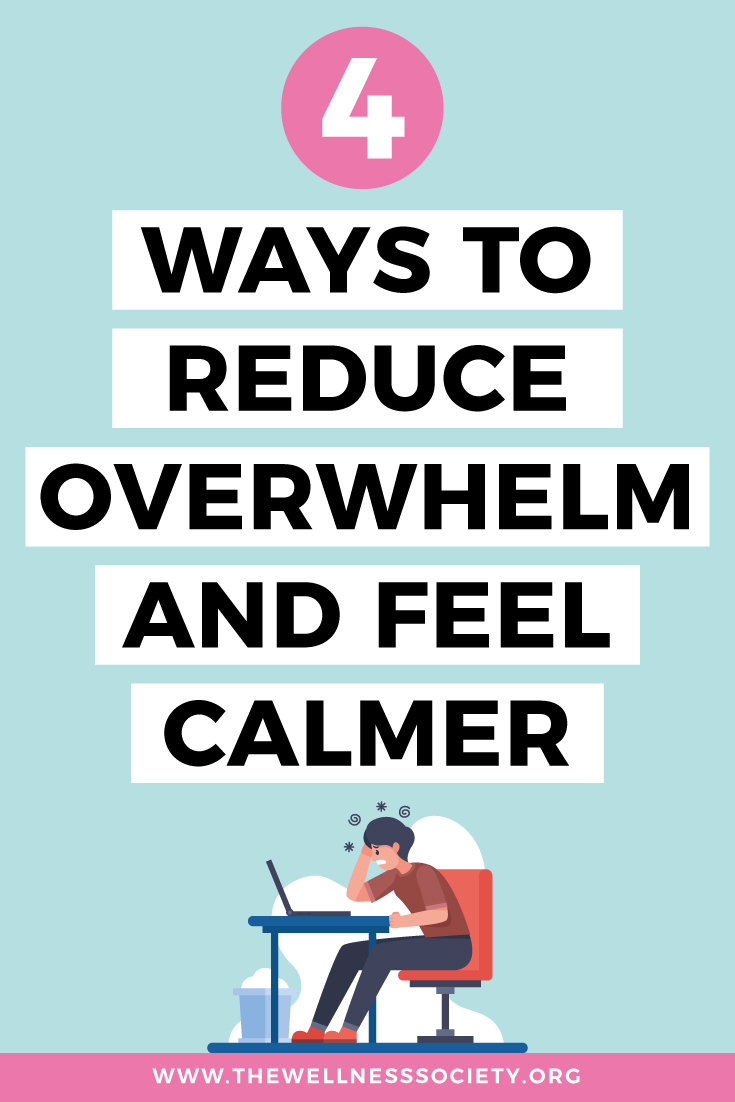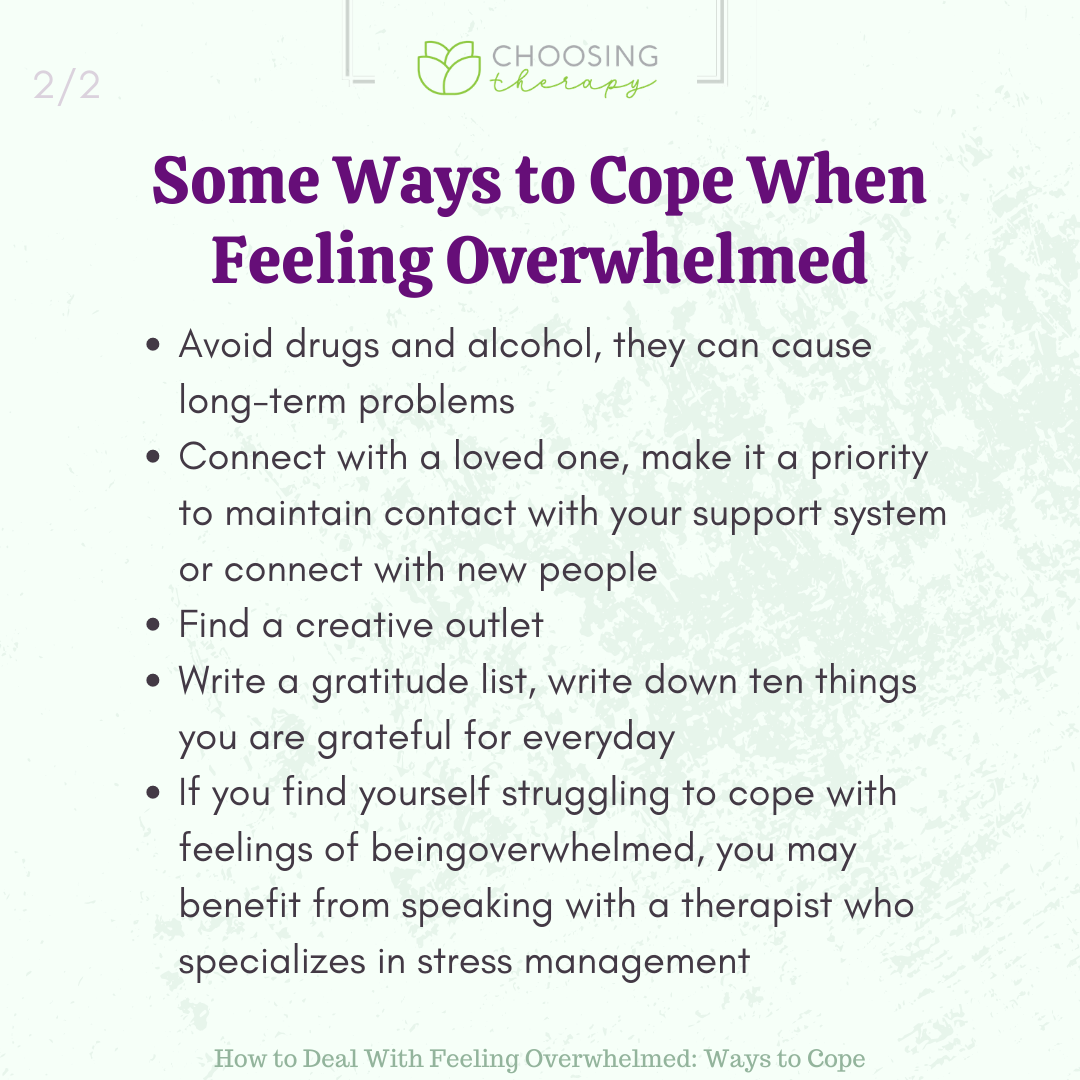How To Overcome Feeling Overwhelmed

In today's relentlessly fast-paced world, feeling overwhelmed has become an alarmingly common experience. The constant barrage of information, demands, and expectations can leave individuals feeling paralyzed and unable to cope.
From managing work deadlines and family responsibilities to navigating social pressures and personal aspirations, the weight of it all can feel crushing, impacting mental and physical well-being.
This article delves into practical strategies, backed by research and expert insights, to help readers effectively overcome feelings of being overwhelmed and regain control of their lives.
Understanding the Root of Overwhelm
At its core, overwhelm stems from a perceived inability to manage the demands placed upon us. This feeling isn't simply about being busy; it's about perceiving a lack of resources – time, energy, skills – to meet those demands.
Dr. Anna Smith, a clinical psychologist specializing in stress management, explains, "Overwhelm is a subjective experience. What feels manageable to one person can feel completely insurmountable to another."
Contributing factors often include poor time management, perfectionism, fear of failure, and a lack of clear priorities.
The Impact on Mental and Physical Health
Chronic overwhelm can have serious consequences. Studies have shown a strong correlation between chronic stress and increased risk of anxiety, depression, and burnout.
Physically, it can manifest as headaches, digestive issues, sleep disturbances, and a weakened immune system, according to the American Psychological Association.
Ignoring these symptoms can lead to a vicious cycle, further exacerbating feelings of being overwhelmed.
Practical Strategies for Regaining Control
Fortunately, overcoming overwhelm is possible with the right strategies. These tactics are designed to empower individuals to proactively manage their lives and reduce feelings of being overburdened.
1. Prioritize and Delegate
Learning to prioritize tasks is paramount. Use tools like the Eisenhower Matrix (urgent/important) to identify what truly requires immediate attention.
Delegate tasks whenever possible, both at work and at home. Don't be afraid to ask for help – it's a sign of strength, not weakness.
Harvard Business Review emphasizes that effective delegation frees up valuable time and reduces stress levels.
2. Break Down Large Tasks
Large, complex tasks can feel daunting. Divide them into smaller, more manageable steps.
Focus on completing one small step at a time, celebrating each accomplishment along the way. This creates a sense of progress and reduces the feeling of being overwhelmed by the enormity of the task.
This approach, known as "chunking," is widely recommended by time management experts.
3. Implement Time Management Techniques
Effective time management is crucial. Explore techniques like the Pomodoro Technique (working in focused bursts with short breaks) or time blocking (scheduling specific time slots for specific tasks).
Minimize distractions by turning off notifications and creating a dedicated workspace.
“Focus on doing one thing well, rather than multitasking poorly," advises David Allen, author of "Getting Things Done."
Regularly review your schedule and make adjustments as needed to ensure it aligns with your priorities.
4. Practice Self-Care
Self-care is not selfish; it's essential for maintaining well-being and preventing burnout. This includes activities that promote physical, mental, and emotional health.
Prioritize sleep, healthy eating, regular exercise, and relaxation techniques like meditation or deep breathing. Make time for hobbies and activities you enjoy.
A study by the Mayo Clinic found that incorporating regular self-care practices significantly reduces stress and improves overall quality of life.
5. Set Realistic Expectations and Boundaries
Perfectionism and the inability to say no are common contributors to overwhelm. Learn to set realistic expectations for yourself and others.
Establish clear boundaries and communicate them assertively. It's okay to decline requests or delegate tasks if you're already feeling overwhelmed.
Remember, your time and energy are valuable resources.
6. Seek Professional Support
If feelings of overwhelm persist or significantly impact your daily life, consider seeking professional help. A therapist or counselor can provide guidance, support, and coping strategies.
Cognitive Behavioral Therapy (CBT) is often effective in addressing negative thought patterns and developing healthier coping mechanisms.
Reaching out for help is a sign of strength, not weakness.
Looking Ahead: Building Resilience
Overcoming overwhelm is an ongoing process, not a one-time fix. By consistently implementing these strategies, individuals can build resilience and develop the skills to manage stress effectively.
Cultivating self-awareness, practicing mindfulness, and fostering strong social connections are also crucial for long-term well-being. Remember to be kind to yourself and celebrate small victories along the way.
By proactively managing demands and prioritizing self-care, individuals can navigate the complexities of modern life with greater ease and confidence, reducing the likelihood of feeling overwhelmed in the future.


















